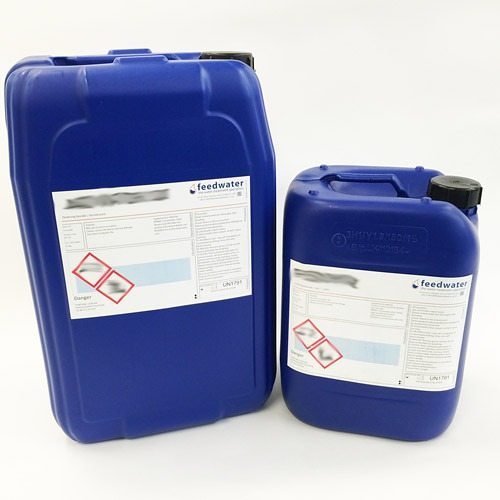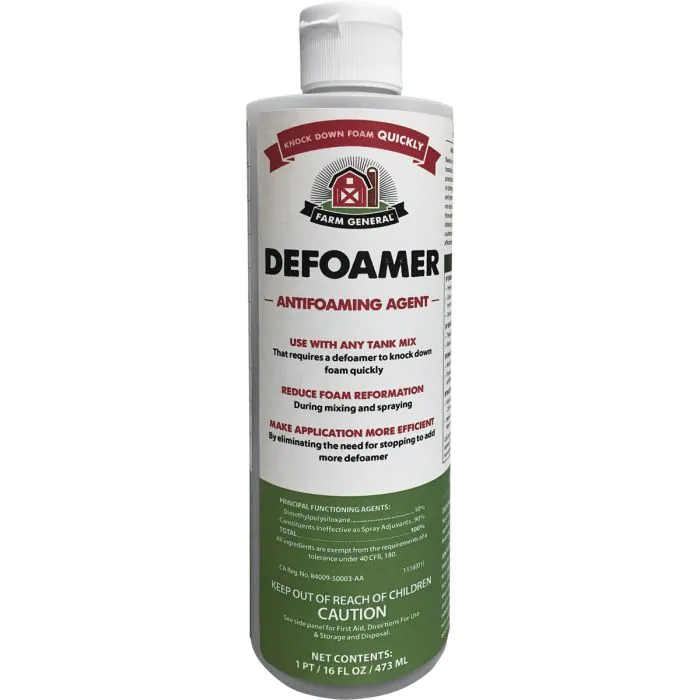What Makes Chemical Defoamer Important for Handling Foam Issues
What Makes Chemical Defoamer Important for Handling Foam Issues
Blog Article
Discover the Top Reasons You Need a Chemical Defoamer for Effective Foam Control
Chemical defoamers serve as necessary representatives that minimize foam development, therefore boosting procedures in markets such as food manufacturing, pharmaceuticals, and wastewater treatment. As we explore the multifaceted benefits of chemical defoamers, it comes to be obvious that their function prolongs beyond plain foam decrease, affecting general productivity in means that may not be immediately evident.
Improved Operational Performance
Exactly how can the efficient use of chemical defoamers significantly boost operational efficiency in different commercial processes? The visibility of foam can impede production by blocking devices, decreasing capacity, and complicating process control. Chemical defoamers act as a critical option in minimizing these obstacles. By minimizing surface stress, they help with the rapid collapse of foam, permitting smoother operation and decreasing downtime (Chemical Defoamer).
In sectors such as food and beverage, pharmaceuticals, and wastewater treatment, the application of defoamers boosts process security and product high quality. As an example, in fermentation processes, regulating foam generation is important for making the most of return and efficiency. In addition, making use of defoamers can bring about more efficient blending and oygenation, causing boosted reaction times and total performance.
Moreover, when foam is effectively controlled, it minimizes the threat of overflow and contamination, making certain conformity with safety and security and top quality criteria. Inevitably, the assimilation of chemical defoamers right into commercial processes promotes a much more effective process, enhancing outcome while preserving top quality requirements.
Cost Savings and Resource Monitoring

Furthermore, using defoamers boosts the performance of basic material usage. In numerous applications, extreme foam can trigger overuse of chemicals, causing unneeded expenditures. By regulating foam degrees, businesses can optimize their chemical input, thereby lowering operational costs. This not only contributes to financial savings but also promotes sustainable practices by decreasing waste.
In addition, minimized foam in processing systems can improve the overall throughput, allowing centers to raise manufacturing capability without incurring extra costs - Chemical Defoamer. This reliable source administration equates into substantial economic advantages, enabling companies to allocate funds towards technology or growth. In summary, the integration of chemical defoamers right into commercial processes cultivates an extra economical and resource-efficient atmosphere, inevitably supporting business growth and sustainability
Improved Item Top Quality

Making use of chemical defoamers plays a crucial function in enhancing item quality throughout different sectors. Extreme foam can lead to irregular product formulas, impacting the last characteristics of items such as paints, coverings, foodstuff, and pharmaceuticals. By mitigating foam formation, chemical defoamers help with smoother manufacturing processes, guaranteeing that formulas remain consistent and meet given top quality requirements.
In the food and drink industry, as an example, the presence of foam can impact the quality and taste of products, inevitably influencing customer satisfaction. Chemical defoamers assist keep the desired structure and look, consequently enhancing the general top quality of the final product. In the production of finishings and paints, foam can lead to flaws such as pinholes and inadequate adhesion, undermining the product's efficiency.
In addition, the use of defoamers can improve the effectiveness of procedures like fermentation and emulsification, which are essential for achieving desired product characteristics. By enhancing manufacturing and making certain consistent quality, chemical defoamers not only enhance the end product however likewise find out here add to a favorable brand reputation. Thus, buying efficient foam control services is necessary for any type of service intending to provide top notch items constantly.
Tools Defense and Long Life
Lessening foam manufacturing is necessary for securing devices and ensuring its durability in various industrial applications. Excessive foam can bring about a series of functional problems, including equipment damage, increased upkeep expenses, and unexpected downtime. When foam builds up, it can cause overflow, leading to spills that compromise the integrity of equipment and bordering locations.
Furthermore, foam can obstruct sensors and pumps, which can prevent efficiency and effectiveness. In severe instances, it can lead to the malfunction her explanation of components, necessitating pricey repair services or replacements. By utilizing a chemical defoamer, firms can efficiently reduce foam development, therefore protecting their tools from the damaging effects of foam-related concerns.
In enhancement to avoiding damages, efficient foam control can significantly boost the operational life-span of machinery. With reduced damage, equipment can keep peak performance levels for a prolonged duration, converting to reduced general operational prices. Executing a defoamer not just guarantees functional efficiency yet also adds to a more lasting business design by extending the lifecycle of useful properties. Investing in a high quality chemical defoamer is a proactive strategy for securing tools and fostering durability in commercial setups.
Convenience Across Industries
Chemical defoamers play an important function in numerous sectors, effectively dealing with foam-related difficulties throughout varied applications. Their convenience is evident in industries such as food and beverage, pharmaceuticals, and wastewater therapy, where foam can decrease and hinder processes effectiveness. In the food sector, defoamers make certain smooth manufacturing by preventing foam formation during blending, fermentation, and bottling, thereby maintaining product high quality and consistency.

Moreover, in wastewater treatment centers, chemical defoamers are employed to manage foam throughout the aeration procedure, advertising optimal microbial task and improving the general therapy efficiency. Their capability to function effectively in high-shear and high-temperature environments additionally highlights their adaptability.
Final Thought
In verdict, the usage of chemical defoamers is critical for effective foam control across different sectors. Their ability to improve operational performance, create significant expense financial savings, boost item quality, and safeguard devices emphasizes their critical role in industrial procedures. Furthermore, the adaptability of defoamers permits extensive application in food production, drugs, and wastewater treatment, inevitably adding to lasting development and the upkeep of high functional criteria. The integration of defoamers is important for maximizing total performance.
Chemical defoamers serve as important agents that mitigate foam development, consequently improving processes in sectors such as food manufacturing, drugs, and wastewater treatment. As we explore the multifaceted benefits of chemical defoamers, it comes to be noticeable that their function extends past simple foam reduction, influencing general efficiency in ways that might not be promptly obvious.
By reducing foam formation, chemical defoamers facilitate smoother manufacturing processes, ensuring that solutions stay uniform and satisfy specified top quality requirements.
By utilizing a chemical defoamer, firms can successfully mitigate foam development, therefore guarding their devices from the detrimental results of foam-related problems.
In verdict, the usage of chemical defoamers is critical for efficient foam control across different industries.
Report this page